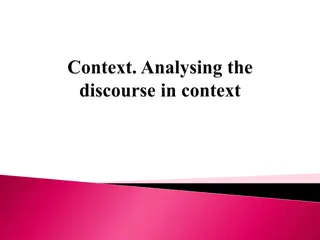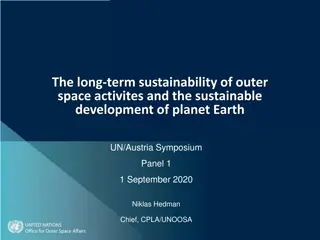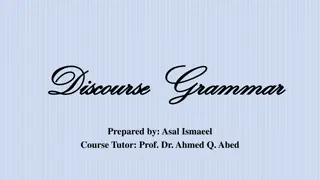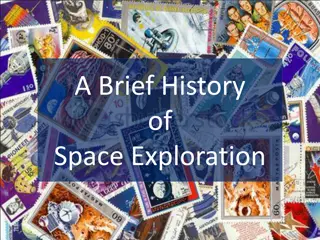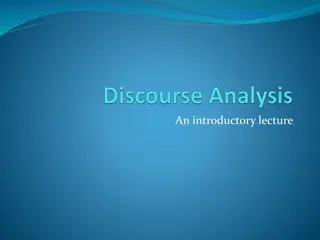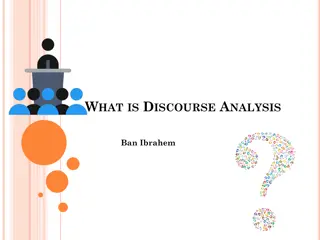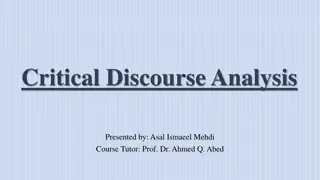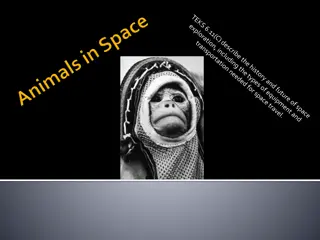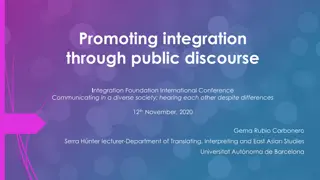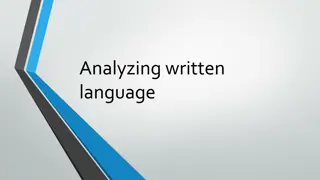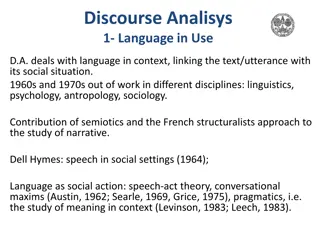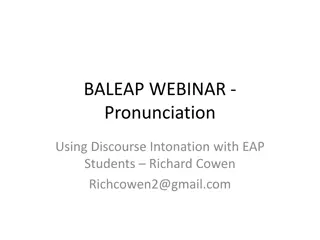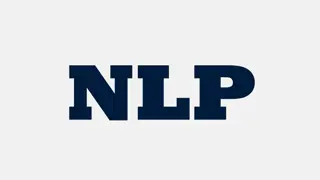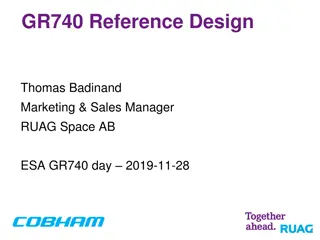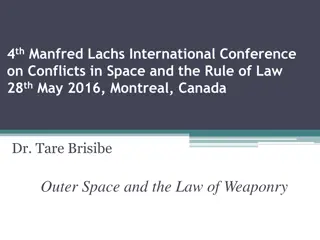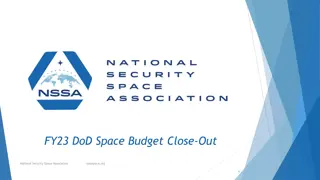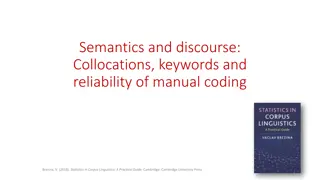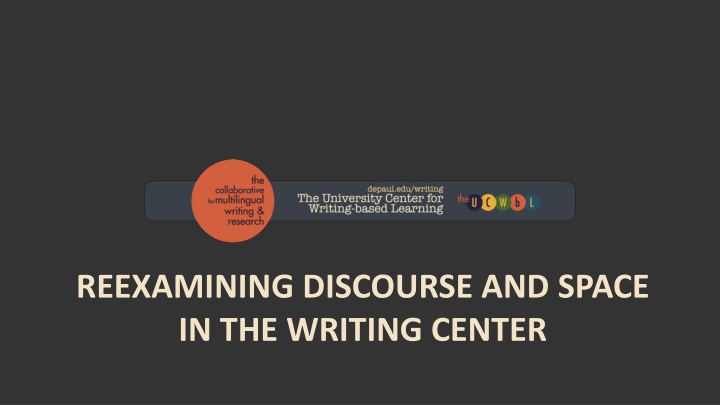
Exploring Discourse and Space in Writing Center Workshops
Dive into the realm of discourse and space within writing center environments, contemplating how language and physical surroundings intertwine to shape writer identities. Learn how spatial theory and discourse analysis can illuminate the dynamics at play in these settings.
Download Presentation

Please find below an Image/Link to download the presentation.
The content on the website is provided AS IS for your information and personal use only. It may not be sold, licensed, or shared on other websites without obtaining consent from the author. If you encounter any issues during the download, it is possible that the publisher has removed the file from their server.
You are allowed to download the files provided on this website for personal or commercial use, subject to the condition that they are used lawfully. All files are the property of their respective owners.
The content on the website is provided AS IS for your information and personal use only. It may not be sold, licensed, or shared on other websites without obtaining consent from the author.
E N D
Presentation Transcript
REEXAMINING DISCOURSE AND SPACE IN THE WRITING CENTER
Free Write Look out on the UCWbL physical space or think about the UCWbL s physical spaces. What comes to mind; what do you think of/about? What feelings do you have? Describe that space you picture. How do you think a newcomer feels?
Workshop Goals Use Spatial Theory and Discourse to resee the UCWbL space and how these frameworks apply to our work at the UCWbL Critically examine the discursive tools used to interact within this space Brainstorm then how Discourse and space works to create place UCWbLness Reexamine our space and maybe place and how this informs writer identity
From the OGee himself DISCOURSE: A REFRESHER
Discourse Discourse [refers to] ways of combining and integrating language, actions, interactions, ways of thinking, believing, valuing, and using various symbols, tools, and objects to enact a particular sort of socially recognizable identity James Paul Gee
Spatial Theory Where things happen are important for understanding how and why they happen When we apply this to learning and language this is especially true
Discourse and Space Discourse and space are mutually productive and constitutive forces, such that our experience of space is deeply discursive and our discursive inventions are deeply embedded in spatial experience. - Jason Schneider
What were examining Discourse Space Place But what does that map look like?
Spatial Theory The goal is analyzing how students and teachers within individual classrooms use the discursive tools of classroom genres to interact (and not interact) with social practices beyond classrooms, those of schools, families, peers, disciplines, professions and so on. - David R. Russell
Spatial Theory Because newcomers bring with them tools and ways of using them from other activity systems, when newcomers pick up and use the genres of the new activity system, those genres and the activity systems maybe be changed in the process of appropriation. - David R. Russell
Discursive Tools What are the discursive tools at the UCWbL Tool: material object used by an individual/group with a motive to accomplish an action with some outcome.
Discursive Tools What is the objective/motive of those tools? What are our desired outcomes? Are some tools used differently in different settings/context?
Spatial Theory Where things happen are important for understanding how and why they happen When we bring this to learning and language this is especially true
Core Value and Learning Outcome WRITER IDENTITY
Fast Write How have the UCWbL space(s) influenced your identity as a writer?
Writer Identity Core Value and Learning Outcome Once we understand the UCWbL space we can see how and why that space will influence writer identity Shaping our work to create writer identity
References Gee, J.P. (2011). Introduction to discourse analysis: Theory and method. 3rd Ed. Routledge, NY. Russell, D.R. (1997). Rethinking genre in school and society: An activity theory analysis. Written Communication 14(4): 504-54. Schneider, J. (2014). From urban enclave to ehtnoburb: Discourse, space, and community in Polish Chicago. Iowa Journal of Cultural Studies 15(Spring): 80-102

